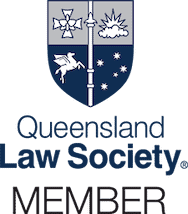Introduction
A recent Determination by the Australian Financial Complaints Authority (AFCA) shines a light upon the thresholds which a consumer must meet, and must continue to meet, in order to claim upon an income protection policy.
The Determination offers some valuable tips and insights into the type of advice we at Denning Insurance Law provide to our clients when our clients consider making a claim upon a first party policy, be it in respect of income protection, total permanent disability or trauma.
Facts
On 2 March 2012, the Complainant obtained an income protection (IP) policy with Resolution Life Australasia Ltd (Resolution).
In September 2017, the Complainant was diagnosed with Miller Fisher syndrome, a rare acquired neurological disease. Further to this, in her role as a centre manager at Company M, the Complainant alleged she felt mistreated and bullied by her employer.
Following the Complainant’s diagnosis in September 2017, she took some months to recover.
On 2 January 2018, the Complainant consulted Dr ML, who opined that following the Complainant’s initial illness, her recovery period led to issues at her workplace which triggered anxiety.
The Complainant was referred to Dr SG for psychological treatment.
The Complainant attempted to return to work, however as she was experiencing stress and anxiety symptoms, she was certified unfit for work from 1 January 2018 to 31 July 2018.
In August 2018, the Complainant eventually resigned from her job at Company M.
In February 2020, the Complainant submitted a claim for IP benefits for her psychological injury at Company M.
On 19 June 2020, Resolution confirmed it had sufficient information to accept the Complainant’s IP claim from 2 January 2018 for “Sickness” as defined under the policy. Resolution confirmed the Complainant met the definition of partially disabled (PD), extracted below, because she had been working as a self-employed independent consultant since September 2017.
The benefit entitlement started after the 730-day waiting period, being 2 January 2020.
On 24 September 2021, Resolution declined the Complainant’s IP claim because the medical evidence showed the Complainant’s claimed condition of “depression and anxiety related to workplace psychological injury” was not preventing her from completing the full duties of her pre-injury role.
Policy Definition
The relevant section of the policy of insurance between the Complainant and Resolution stated:
The person insured is partially disabled if, immediately after being totally disabled for at least 7 out of a consecutive 12 days, he or she returned to work or was capable of returning to work as determined by us based on medical evidence, and, because of the disability, he or she is:
- not capable of doing one or more duties that are important and essential in producing income of his or her occupation
- earning an income less than his or her pre-disability income, and
- under medical care.
Medical Evidence
On 2 January 2018, Dr ML advised that following the Complainant’s initial illness, her recovery period led to issues at her workplace which triggered anxiety and she was later referred to Dr SG for psychological treatment.
In her report dated 24 April 2020, Dr SG opined the Complainant had the capacity to return to her previous job in a different organisation, in a part-time capacity.
In a later report dated 2 June 2020, Dr SG opined the Complainant had the capacity to complete basic duties as a centre manager, and with confidence can complete all tasks associated with the position.
In a further report dated 2 February 2021, Dr SG opined the Complainant could not return to the previous workplace (i.e. Company M) but to a suitable workplace, part-time and then full-time.
On 10 May 2021, the Complainant attended an independent medical assessment (IME) with Psychiatrist Dr ER. As a result of the IME, Dr ER opined:
- the Complainant had fluctuating symptoms of distress upon reminders of her experiences at Company M; however, those symptoms were not severe or persistent.
- the Complainant no longer qualified for a psychiatric diagnosis, although she clearly had a significant adjustment disorder following her acute medical illness.
- The Complainant should not return to work in a large institution, rather a small to medium organisation where she has considerable autonomy.
- The Complainant would be able to complete the duties of a job within a small to medium enterprise, depending on the nature of the institution.
In her report, Dr ER stated “I consider her limitations to future employment are related to the fact that such employment (working in a large enterprise) is likely to be very triggering and could cause a relapse of her psychological symptoms even though she is largely stable at the moment. Thus, one could state she has a vulnerability to certain triggers, one of them being the kind of institution in which she is employed”.
On 26 July 2021, Dr ML agreed with the findings of Dr ER.
The Complainant's arguments
The Complainant requested that AFCA order Resolution to continue to pay her IP benefits after 24 September 2021.
The Complainant argued that her IP claim was not about whether she could return to work based on her ability and skillset; rather her IP claim was about whether she could return to a position similar to her previous role as a Centre Manager at Company M.
While the Complainant admitted she could work, she submitted her current work as a skin consultant could not be considered as her occupation because it did not generate income to the level of her career occupation as a Centre Manager at Company M.
The Complainant argued, given her age, she was not able to compete with younger people for work and felt she was a victim of large institutions.
The Complainant argued the policy only required evidence that the Complainant was not capable of doing one or more duties important and essential in producing income of her occupation.
Specifically, the Complainant submitted the medical evidence proved the Complainant is not capable of performing one or more duties that are important and essential in producing income of her occupation.
The Insurer's arguments
Resolution agreed the Complainant was limited in her future employment options, based upon the medical evidence.
However, Resolution submitted the medical evidence supported a conclusion the Complainant was capable of performing all of the important duties of her pre-injury role as a Centre Manager, but she may experience difficulties doing so either with her previous employer or another similar large institution.
The medical evidence confirmed the Complainant’s medical condition may make it more difficult for the Complainant to find work in her previous role, but the medical evidence did not reach the threshold required by the policy.
Findings
The policy did not define “occupation”. To formulate a definition of “occupation”, AFCA considered the Complainant’s pre-disability occupation as a Centre Manager, in terms of the Position Description and the actual tasks she completed on a daily basis.
AFCA concluded the Complainant’s important income producing duties included secretary and administration duties, event management, supervising, managing internal politics, and managing the schedules of visiting academics.
AFCA determined as follows:
- while no medical specialist said the Complainant had completely recovered, there was clear medical evidence she had made a good recovery and no longer had a diagnosable medical condition (an injury or sickness) causing disability.
- that meant the Complainant was capable of returning to her pre-injury duties, only not at Company M or another large enterprise.
- the medical evidence showed the Complainant’s claimed condition of “depression and anxiety related to workplace psychological injury‟ was not preventing her from completing the important and essential duties of her pre-injury occupation.
- the Complainant has not established she was PD within the meaning of the policy after 24 September 2021.
- The Complainant was not entitled to further IP benefits under the policy.
- As a result, it would not be fair to require Resolution to continue to pay the Complainant’s benefits.
Commentary
The Determination is important for a number of reasons, including:
- Things change over time. If you make a claim, and it is accepted by your insurer, be cognisant of how ‘things’ change and how those changing ‘things’ may impact upon your claim. As the Determination demonstrates, the changing/improving of the Claimant’s medical condition ultimately caused her payments to stop.
- Medical evidence is crucial. Insurers have the ability to obtain your medical records and/or conduct IMEs. As the Determination demonstrates, the medical evidence is vital in terms of determining your prospects of success.
- Other investigations. Following from points 1 and 2, insurers can, and do, conduct investigations to identify how things change over time. At Denning Insurance Law, we know that insurers obtain surveillance footage of our clients to brief and re-brief medical specialists.
- Comply with your duty of disclosure. If you are aware that your situation has changed, especially if your medical condition has improved such that you may no longer be entitled to benefits from your insurer, you must abide by your duty of disclosure.
- Read and understand your policy wording. At Denning Insurance Law, we regularly give advice about policy wordings and the benefit, or otherwise, of making a claim. One of the regular hurdles we experience, when clients are confused about their policy wordings, is the fundamental difference between “any occupation” and “own occupation” when meeting the definition or threshold in a policy of insurance.





